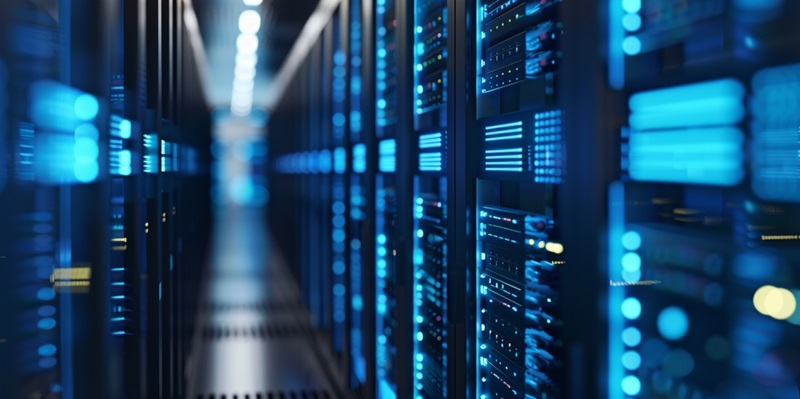Data centers are the lifelines of modern businesses, supporting critical operations through extensive networks, hosting services, and data storage. As such, the security of these facilities is paramount. Professionals tasked with maintaining the integrity of data centers must be well-versed in a diverse set of security aspects, and one way to demonstrate their expertise is through specialized certifications. This guide provides an in-depth look at the certifications that are essential for securing today’s data centers against a variety of threats.
Understanding the Data Center Security Landscape
The Unique Aspects of Data Center Security
Data center security extends beyond the digital frontiers guarded by typical IT security measures. These facilities encompass a broad scope of vulnerabilities, including physical intrusion, software breaches, and threats affecting operational technology. Unlike the general IT environment, data centers house concentrated amounts of data and infrastructure that demand stringent protection—from hardened physical enclosures to tightly managed access controls and network security protocols.
The Need for Specialized Security Certifications
The intricate ecosystem of a data center requires security personnel to possess knowledge that surpasses the remit of conventional IT security certifications. Traditional programs may not adequately address the confluence of cybersecurity, physical security, and operational technology unique to data centers. Certifications that explicitly focus on the nuances of data center security ensure that professionals are equipped to manage the breadth of risks particular to these environments.
Software Security Certifications for Data Centers
Entry-Level and Comprehensive Certifications
For those entering the field, the CompTIA Security+ certification is a doorway to understanding the fundamentals of cybersecurity, including threat management, cryptography, and identity management. It lays a foundation essential for any security professional. Progressing to CISSP (Certified Information Systems Security Professional) provides a deeper dive into security principles and practices that are crucial for data center environments, encompassing a comprehensive skill set from risk management to disaster recovery planning.
Advanced and Specialized Certifications
For security experts aiming to preemptively neutralize threats, the Certified Ethical Hacker (CEH) designation gives one the tools to think like an attacker, and better defend against them. Delving into the NIST Cybersecurity Framework (CSF LI) certification introduces a strategic mindset dictated by national benchmarks and guidelines. These standards are integral for establishing a resilient security posture that is both adaptive and proactive in the face of emergent challenges.
Physical Security Certifications for Data Centers
The Role of Physical Security in Data Centers
Physical threats to data centers can range from natural disasters to unauthorized human access. The Physical Security Professional (PSP) certification is extensive in its coverage of these issues, from threat assessment to implementing integrated physical security systems. Understanding how to navigate the complexities of surveillance, access control, and physical risk management is crucial for professionals who wish to ensure their facility’s integrity against tangible threats.
Certifications Tailored to Government and Defense
In environments where security standards are non-negotiable, such as governmental or defense-focused data centers, the Physical Security Certification (PSC) is particularly apt. It underscores the stringent security protocols and risk management strategies that align with national security measures. Professionals bearing this certification confirm their capacity to uphold the elevated security demands associated with protective services and infrastructure crucially sensitive in nature.
Operational Technology Security Certifications
Industry-Specific OT Security Certifications
Operational technology in data centers, including industrial control systems that handle environmental conditioning or power management, needs focused protection. The Global Industrial Cyber Security Professional (GISCP) certification tackles how to secure these complex systems. Professionals with this certification can address the specialized requirements of operational technologies. The ISA/IEC 62443 certification also plays a pivotal role, designed for those who must navigate the security landscape specific to industrial automation and control systems within data centers.
Securing IoT within Data Centers
As operational technologies evolve, the Internet of Things (IoT) has become central to data center operations. Securing interconnected devices within these infrastructures necessitates unique skillsets. The IoT Fundamentals Certificate provides vital insights into the challenges and solutions for IoT security, giving professionals the know-how to protect a network that extends far beyond traditional computers and servers.
Data centers form the backbone of modern businesses, housing critical digital operations and data. Given their importance, ensuring their security is a high-stakes task. Professionals in charge of data center protection must possess a comprehensive understanding of various security measures to safeguard these facilities against numerous threats effectively. To demonstrate their proficiency, many opt for specialized certifications tailored to data center security. These certifications are crucial as they validate the knowledge and skills of individuals to maintain a robust security posture within these vital operations hubs. They cover everything from physical security protocols to cyber threat mitigation, reflecting the diverse nature of challenges that data centers face. As the threats evolve, so does the need for current and comprehensive certifications, making them an indispensable part of a data center security professional’s qualifications.

